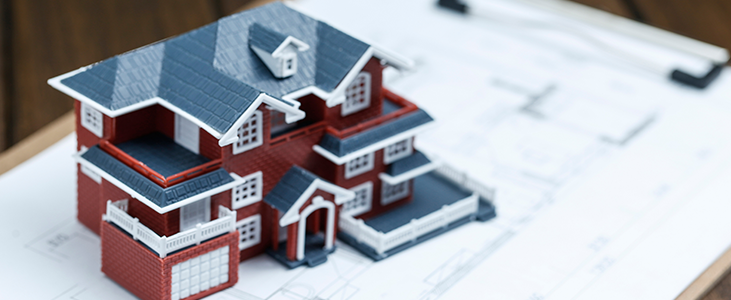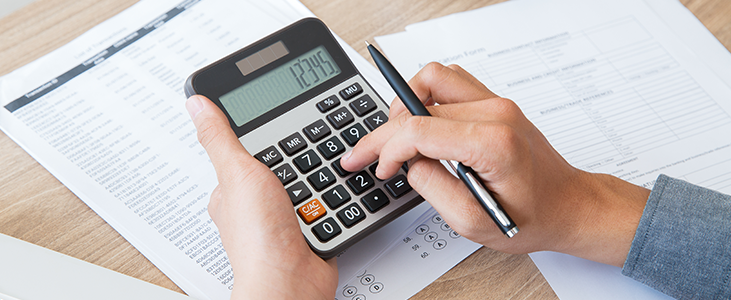Home Loan Tax Benefit – Know Your Income Tax Benefits Of Owning A House
Posted on December 14, 2018
Who does not dream of owning their own home? Whether it’s, an apartment in Calicut, an independent villa or bungalow, having one’s own house is a matter of prestige to an individual. Of course, the whole process is easier said than done.
A lot of thought and research goes into it: should you buy a readymade house, or build? Do you want an independent house or an apartment? What kind of amenities should the building or society have if you’re looking in an apartment building or gated community? The questions you will want answered are endless.
Then of course, there is the question of money. Having your own house does not come cheap. Whether you build or buy, you need a significant amount of money for your dream home.
The good news is that nowadays all the major banks and many financial institutions offer home loans at very easy terms, and competitive interest rates. This may make your work easier; but did you know that taking a home loan can also offer you other financial benefits? If you were not aware of the home loan tax benefits, we’ll tell you all about it. Also read the benefits of real estate investment in Kerala.
1. Know the Basics of House Property

A house property can be your home, office, shop, building, or even a parking lot. The IT Act considers all of these as house property for the purpose of taxation; any income you earn from such property can be taxed – like if you rent it out.
The owner of such a property for tax purposes is the legal owner, who can take decisions in their own right – not on behalf of anyone else. If the property is used for business or for profession (like doctor’s or lawyer’s consultancy) or freelance work, it is taxed under the head ‘income from business and profession’, and you can claim repair and maintenance expenses as business expenses. Also read things to check before buy a property in Kerala.
2. Self-Occupied House Property
This is the property used for one’s residence – it can be occupied by the family members of the taxpayers – parents, spouse and children, etc. If the taxpayer owns more than one self-occupied house property, only one is considered as self-occupied, and others are assumed to be rented out, and may be taxed. Which property you want to choose as self-occupied is up to you, the taxpayer.
A house property that is rented out by the owner, whether for the entire year or for a few months, is taxed as ‘let out house property’. If you have inherited the property from your parents, grandparents etc., it can again either be a self-occupied house property or a let out one, as per income tax regulations. You can also try this low cost house construction methods used in Kerala.
3. Calculating Income from House Property

For this we first need to calculate the gross annual value (GAV) of a property. This is basically the rent collected on the house in the whole year. For the self-occupied house, it will obviously be zero. From the GAV, deduct the property tax you pay to get the NAV (net annual value). That is, GAV-property tax= NAV. Out of this, you can reduce 30% as standard deduction; any expense borne beyond 30% of the NAV cannot be claimed as tax relief. So, 70% of your NAV is what you’re left with. There are some important property documents required for home loan.
4. Reducing Your Tax Burden
The next step is reducing the interest you pay on your home loan. This is your taxable income. That is, 70%*NAV- home loan interest = income from housing property. The rate of tax depends on the slab applicable to you.
Let’s see another way this works. If your housing loan has been taken on your self-occupied property, when you claim deduction on the loan interest, the result is a loss on your property.
Remember we had said earlier that the GAV of a self-occupied property is 0. So now 0-x (interest on home loan) = negative value, or loss. You can use this loss to set off the income you gain from other heads, like your salary, consultation fees, sale of produce, and so on.
These are two home loan tax benefits you can get – very simply explained here.
One thing you need to remember here is that the rental value used to calculate the GAV or gross annual value of a property that is not self-occupied, and is let out, must be higher or equal to the rent as decided by the Municipality; it cannot be lower.
5. Tax Deduction on Home Loans
Another home loan tax benefit you get is that you can get a deduction of up to Rs. 2 lakhs, on the interest on your home loan, if the taxpayer or their family uses it as their residence, or if it is vacant. If you have rented it out, you can claim the entire interest on the home loan as deduction. Your deduction limit is reduced to Rs. 30,000 if:
- The loan is taken on or 1 April 1999
- And, the purchase or construction of the house is not completed within 5 years from the financial year ending of the year in which the loan was taken.
Note: you can claim deduction on home loan interest only when the construction of your home is completed – or the purchase is affected. In the pre-construction period (time from when you have borrowed money till the construction in complete) if you have paid interest on the home loan, you can claim as tax deduction after the construction is completed, in 5 equal installments. Check out about the registration of under construction flat.
6. Tax Deduction on Principal Repayment
Apart from the interest, you can also claim deduction on the principal you repay, up to Rs.1,50,000, as long as:
- The loan is taken for purchase or construction of a new house property
- The house is not sold in five years from the time you tool possession of it.
7. Stamp Duty and Registration Charges

Expenses related to the purchase of a house like stamp duty and registration fees are also eligible for tax deduction as per Section 80C of the IT Act – subject to a cap of Rs. 1.5 lakhs. You should claim these expenses in the year you make these payments.
8. Tax Deduction for First-Time Homeowners: Section 80EE
This addition to the IT Act allows a home loan tax benefit of up to Rs. 50,000 to first time homeowners, on a newly purchased or constructed house (not under construction).
9. Claiming Deduction on Home Loan
The share of ownership you have on your house property determines the amount of deduction you can claim on your tax. That is, the home loan must also have your name as the principal or co-borrower, and you must also be part owner of the property to claim tax deductions. All co-borrowers can claim these deductions on a pro-rata basis, up to a limit of Rs. 2 lakhs each.
As mentioned earlier, you can claim home loan tax deduction only from the financial year in which the construction is completed.
If you are employed in a firm, you need to submit your home loan interest certificate to your employer so that they can adjust the TDS accordingly.
If you’re an entrepreneur, self-employed, free-lancer etc., you can either get a tax practitioner or CA to do this for you, or you can even do all the calculations yourself, claim refunds, and file your tax returns accordingly. Also read about the Kerala land registration.
10. HRA And Home Loan Tax Benefit
Let’s say you own a flat in Calicut but you work in Kochi; you’ve taken a housing loan on your Calicut apartment which is currently vacant, and you’re paying rent for the one you occupy in Kochi. You can claim HRA for the rent you pay, and tax deduction on the home loan interest, up to a limit of Rs. 2 lakhs.
However, if you let out your apartment in Calicut, and live in a rented apartment in Kochi, you can claim HRA for your rent, and the entire interest you pay on your home loan in the whole year.
So you can see that taking a housing loan can bring you numerous tax benefits apart from helping you own your dream home, thanks to these relief measures the Government provides. Even if you have the requisite funds, it may not be a bad idea to avail a home loan to purchase property, because you can reduce your tax burden significantly.
Make sure to do a little research on a few financial institutions before you finalize on any one; compare interest rates, repayment terms, preclosure penalties, and so on, and then make your decision.
If you’re interested in buying a flat from PVS Builders, our executives will be happy to help you in your search for an appropriate lender. Just walk into our office, and tell us what you need.
Did you find this article interesting? Is the information useful? If so, please leave your comments below, and do share the article so that others can also see. Thanks for reading!
PVS Builders & Developers is one of the leading builders in Calicut that provides top-notch flats and apartments in Calicut,Kannur and Aluva. For booking your apartment, contact us today or visit our website for more information


